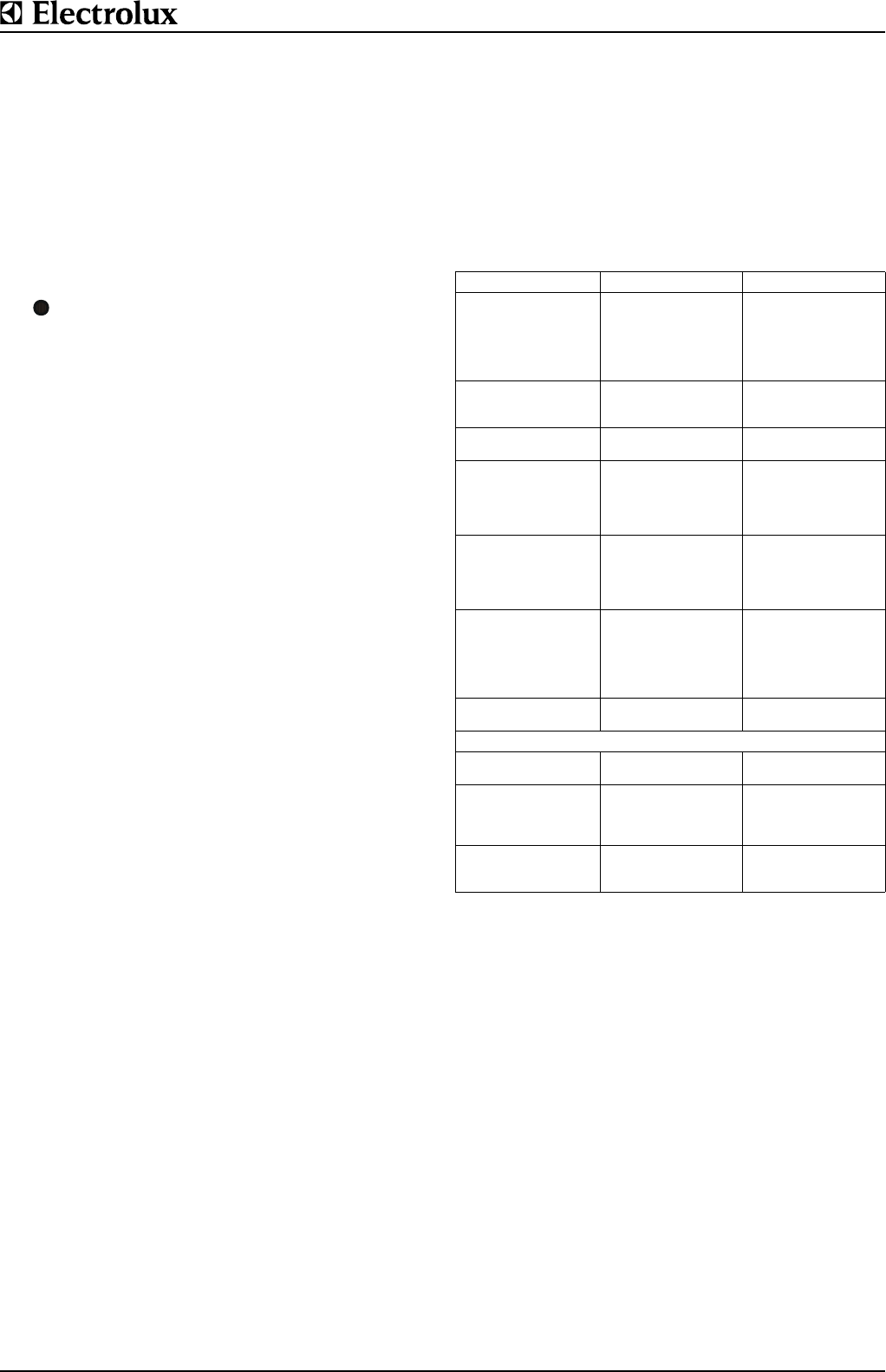
OPERATING INSTRUCTIONS
Seite 10 62.9677.01_UL
2.7 SWITCHING OFF THE GRILL/GRIDDLE
2.7.1 MAIN BURNER
D Turn the knob (1/Fig.9) back clockwise from highest setting
7 to pilot burner ignition 1.
The gas supply to the main burner is stopped and the main
flame is shut down. The flame of the pilot burner keeps on
burning and is available for further main burner ignitions.
2.7.2 PILOT BURNER FLAME
D Press the knob (2/Fig.9) lightly and turn clockwise from
pilot burner ignition to Off.
The complete gas supply is cut off and the pilot light
extinguishs.
= Off
D Ignition can only start again when the heating element has
cooled down.
2.7.3 LONG SHUT-DOWNS
The following should be observed when shutting down for a
long period:
D When operating with liquid gas, also turn off the bottle or
tank valve.
D Never store the fryer where the temperature can drop
below 32°F (0 °C).
D Rub all chrome nickel steel surfaces with a cloth soaked in
vaseline oil, to lay down a thin protective coating.
D Air the installation site regularly.
3. CLEANING
The appliance should be cooled before every cleaning
operation.
D Shut off all the gas taps and control valves on the range.
D Use a brush to wash the base plate with hot water to which
a fat-dissolving agent has been added, rinse with hot water
and rub dry. Do not use bleaching and chloric cleaning
agents.
D Heavy soiling can be removed with a scraper.
D Depending on utilization, the pressure tube and the drip
pan should be cleaned periodically with a small brush.
D Wash rust-resistant chrome nickel steel panels with hot
soapy water to which a fat-dissolving agent has been
added and rub them dry.
Note
D The appliance must not be sprayed with a water jet or high-
pressure cleaner.
D The floor directly in front of, near and behind the appliance
must be cleaned normally without a high-pressure cleaner.
D Never use steel wool, spatulas or ordinary steel wire
brushes for cleaning the surfaces, since the deposition of
steel particles can lead to rust formation. Stainless steel
wool can possibly be used, but only in the grinding direc-
tion.
D Never use chloric products (bleaching dye, hydrogen chlo-
ride etc.) for cleaning chrome nickel steel, even if they are
diluted.
D Never use corrosive substances for cleaning the floor
under the appliance (e.g. hydrochloric acid). Clean the
appliance with commercial cleaning agents. Do not use
granular or abrasive agents.
3.1 GAS BURNER
So far as is necessary, the pilot burner and main burner are
cleaned by after-sales service.
3.2 FLAME
In a visual check, the flames must be dark blue without any
upper yellow or orange tips; they must be stable and soot-free
and adhere firmly to the outlets.
If there is a lack of primary air, the flame has yellow streaks
and tips; if there is too much primary air, the flame is short,
transparent and tends to lift off the burner.
When the flame is correctly adjusted, it must not lift off or back-
fire when the burner is cold as well as warm.
The flame will backfire into the inside of the burner when the
speed of the gas-air mixture through the burner outlets is too
low, particularly when the air passages are dirty.
The different ignition processes must also take place without
any delays. This concerns: ignition, arc-through and. extending
the flame over the whole burner area.
If the flame fails to meet all the requirements, cleaning or
maintenance is necessary.
4. MALFUNCTION
Plate does not heat up. • The thermal limiter has
tripped.
• Defective thermostat.
• The capillary tube sen-
sor is damaged.
- Inform After-sales ser-
vice.
Flame smokes. • Gas mix too rich.
• Partially blocked burner
gaps.
- Inform Customer Ser-
vice.
Long yellow flame tips. • Mixing tube narrowed by
dirt.
- Inform Customer Ser-
vice.
Flame lifts off. • Exit velocity too high due
to blocked burner gaps.
• Pressure regulator on
gas cylinder not opera
-
ting correctly.
- Inform Customer Ser-
vice.
Flame flashes back. • Mixture too lean.
• Insufficient exit velocity
at burner gaps.
• Soiled airways
• Blocked nozzle.
- Inform Customer Ser-
vice.
No flame or flame too
small.
• Blocked nozzle or mixer
tube.
• Blocked gas tap.
•No gas.
• Insufficient gas pres-
sure.
- Inform Customer Ser-
vice.
- Check gas tap setting.
No flame at low setting. • Blocked low setting
nozzle.
- Inform Customer Ser-
vice.
No flame. • Blocked burner gaps.
• Blocked nozzle.
- Clean pilot burner cap.
Flame goes out after con-
trol valve release.
• Thermo-element insuf-
ficiently heated (dirty?)
• Defective thermo-ele-
ment
- Inform Customer Ser-
vice.
Flame too small or too
large.
• Primary air ratio adju-
sted.
• Nozzle blocked.
- Inform Customer Ser-
vice.
Malfunction Possible cause Remedy
Pilot burner
